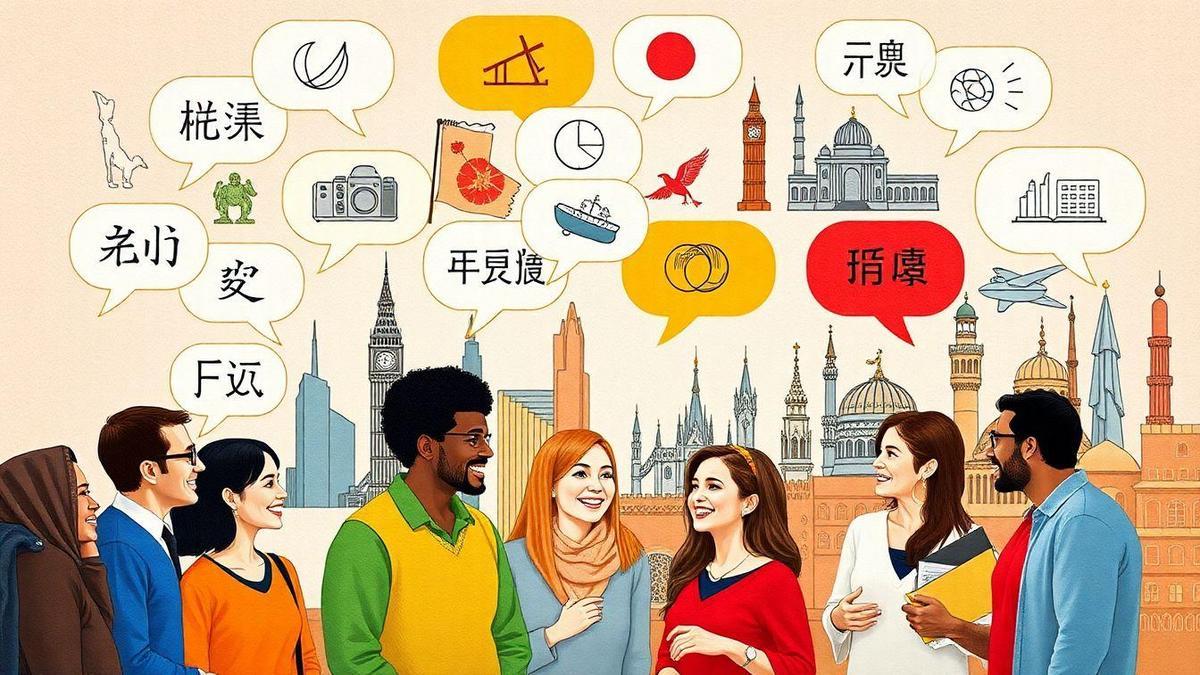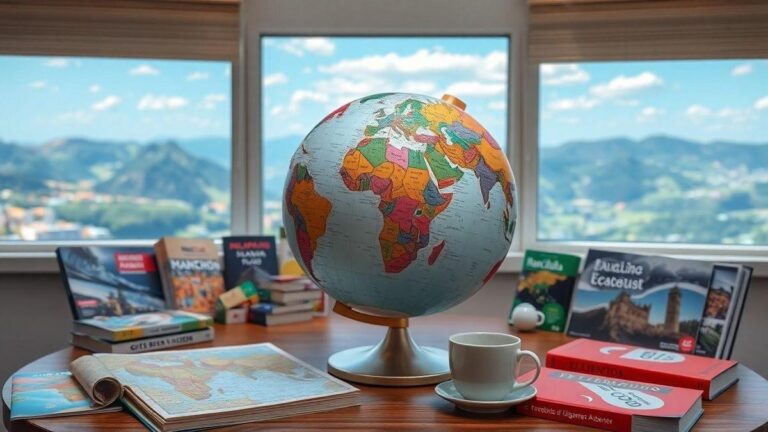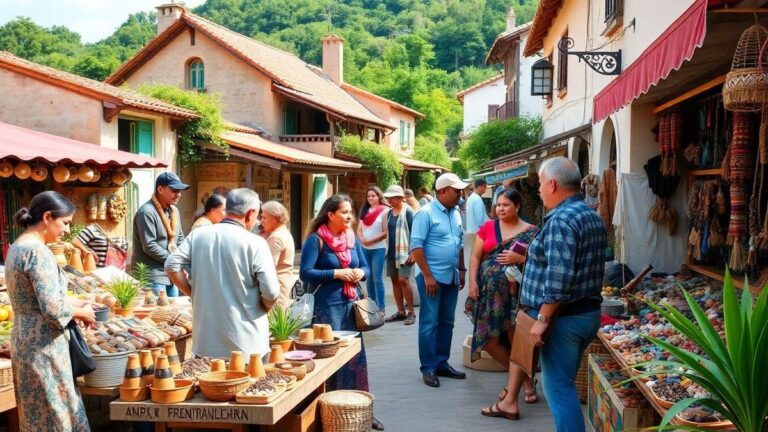Strategies for overcoming language challenges in foreign cultures
Strategies for overcoming language challenges in foreign cultures are essential for anyone looking to master a new language. Imagine stepping into a new world, where every word opens doors and each phrase builds bridges. This article dives into how cultural immersion not only helps you learn a language but also makes it fun and exciting! You’ll discover practical tips to boost your communication skills, break down language barriers, and adapt to new customs. Let’s embark on this adventure together and explore the vibrant connection between culture and language!
Key Insights
- Practice speaking the language often.
- Use translation apps for help.
- Learn key phrases before visiting.
- Be patient and open-minded.
- Listen carefully to others.
The Importance of Cultural Immersion in Language Learning
How Cultural Immersion Helps You Overcome Language Barriers
Cultural immersion is like diving into a pool. You can learn to swim by reading a book, but jumping in teaches you how to float, dive, and navigate the water. When you immerse yourself in a culture, you practice the language in real-life situations, which helps you overcome language barriers more easily.
Imagine you are in a bustling market, chatting with locals. You hear phrases and slang that you won’t find in textbooks. This hands-on experience helps you understand the nuances of the language and builds your confidence. You learn to express yourself without worrying about making mistakes.
Real-Life Benefits of Cultural Immersion for Language Learners
Cultural immersion offers several real-life benefits for language learners. Here are some key points:
- Enhanced Vocabulary: You learn words and phrases that are commonly used in daily life.
- Understanding Context: You see how language changes in different situations, helping you respond appropriately.
- Building Relationships: Engaging with locals can lead to friendships, making your learning journey more enjoyable.
- Boosted Motivation: Experiencing a new culture can spark your interest in learning the language even more.
| Benefit | Description |
|---|---|
| Enhanced Vocabulary | Learn words used in daily conversations. |
| Understanding Context | See language use in real situations. |
| Building Relationships | Make friends and practice speaking. |
| Boosted Motivation | Experience culture, fueling your desire to learn. |
Boosting Your Cross-Cultural Communication Skills
Cultural immersion is a powerful way to boost your cross-cultural communication skills. When you interact with people from different backgrounds, you learn to understand their perspectives. This can help you connect better with others, even if you don’t speak the same language fluently.
For example, if you travel to a new country and participate in local traditions, you’ll see how people express their feelings and ideas. This understanding can help you communicate more effectively, whether you’re making new friends or working with colleagues from diverse cultures.
In short, cultural immersion not only helps you learn a new language but also enriches your life. You gain insights and experiences that textbooks can’t provide.
Effective Language Adaptation Strategies for Foreign Cultures
Practical Techniques for Improving Your Language Skills
When diving into a new culture, the first step is often learning the language. Here are some practical techniques to help you improve your language skills:
- Daily Practice: Try to speak or write in the language every day. Even a few minutes can make a difference.
- Language Apps: Use apps like Duolingo or Babbel. They make learning fun and interactive.
- Flashcards: Create flashcards for vocabulary words. This old-school method still works wonders!
- Watch Movies: Enjoy films in the target language with subtitles. It helps you hear pronunciation and catch common phrases.
- Join a Language Group: Find local meetups or online groups. Speaking with others can boost your confidence.
How to Use Language Learning Methods to Adapt Quickly
Adapting to a new language can feel like climbing a mountain, but using the right methods can make the journey smoother. Here are some effective strategies:
| Method | Description |
|---|---|
| Immersion | Surround yourself with native speakers. |
| Shadowing | Listen and repeat phrases as you hear them. |
| Role Play | Practice real-life scenarios with a partner. |
| Language Exchange | Pair up with someone who speaks your target language. |
By adopting these methods, you can quickly adjust to the language and culture around you.
Building Cultural Competency Through Language Adaptation
Language is a bridge to understanding culture. As you learn, you’ll also discover customs, traditions, and values. This is how you build cultural competency:
- Ask Questions: Don’t be shy! Inquire about local customs and traditions.
- Participate: Join local events or festivals. This gives you a taste of the culture while practicing the language.
- Listen Actively: Pay attention to how locals speak. This can teach you nuances and slang that textbooks often miss.
Enhancing Your Intercultural Skills for Better Communication
The Role of Multilingualism in Overcoming Misunderstandings
When you travel to a foreign country or meet someone from a different background, language can be a bridge or a barrier. Being multilingual helps you connect with others in a deeper way. It allows you to express thoughts, feelings, and ideas clearly, reducing the chance of misunderstandings.
Think about it: if you can speak the local language, you can share jokes, stories, and emotions that might get lost in translation. For instance, a simple greeting in someone’s native tongue can light up their face and open doors to conversations you might not have had otherwise.
Here’s a quick look at how multilingualism can help:
| Benefit | Explanation |
|---|---|
| Builds Trust | Speaking someone’s language shows you care. |
| Enhances Clarity | Reduces chances of miscommunication. |
| Cultural Insight | Helps you understand local customs better. |
Tips for Developing Effective Communication Techniques
Effective communication is like a dance; it requires practice and patience. Here are some tips to help you become a better communicator in diverse settings:
- Listen Actively: Pay attention to what others are saying. Nod, smile, and show that you are engaged.
- Ask Questions: If you don’t understand something, ask! It shows you are interested and want to learn.
- Use Simple Language: Avoid jargon or complex phrases. Keep it straightforward.
- Non-Verbal Cues Matter: Sometimes, gestures and facial expressions say more than words.
Creating Contextual Understanding in Diverse Environments
Creating contextual understanding is key in any conversation. This means recognizing the background and culture of the person you’re speaking with. Here’s how you can do that:
- Research: Before you visit a new place, learn a bit about the culture.
- Be Observant: Watch how people interact. This will give you clues on how to communicate effectively.
- Adapt: Be flexible in your communication style. If something isn’t working, try a different approach.
By following these strategies, you can overcome language challenges in foreign cultures and foster meaningful connections.
Frequently Asked Questions
What are effective strategies for overcoming language challenges in foreign cultures?
Using simple words helps. Also, try to learn a few phrases in the local language. It shows respect and helps you connect.
How can I build my confidence when speaking a foreign language?
Practice is key! Talk with friends, use language apps, or join a group. The more you speak, the more confident you’ll become.
What should I do if I don’t understand someone?
Don’t be shy! Ask them to repeat or say it differently. Nodding and smiling helps too. Body language can bridge gaps.
Are there tools I can use to help with language barriers?
Yes! Translation apps can be a lifesaver. They help you understand and communicate better, making things easier.
How can listening help me overcome language challenges?
Listening is super important! It improves your understanding and pronunciation. Try watching movies or listening to music in that language.

Hey, I’m Paula — traveler, language nerd, and the curious mind behind znewz.com. I’ve always believed that real connections happen through words, gestures, and shared experiences — not algorithms. That’s why I created this blog: to share travel stories from around the world and explore how language helps us connect in ways that AI still can’t. Whether I’m getting lost in a tiny town or striking up a chat in a language I barely know, I’m here to show that sometimes the best moments happen when tech takes a back seat.





